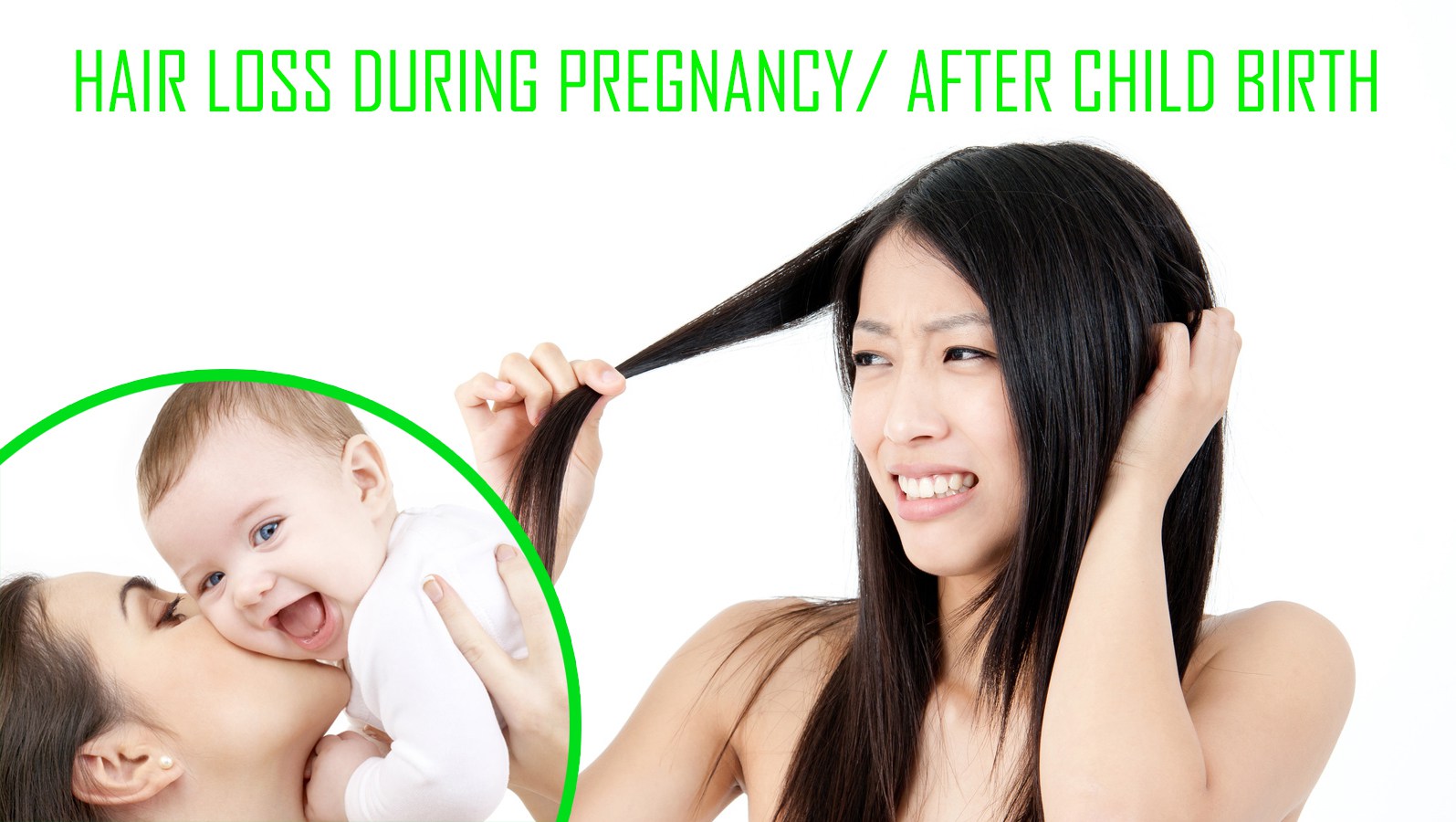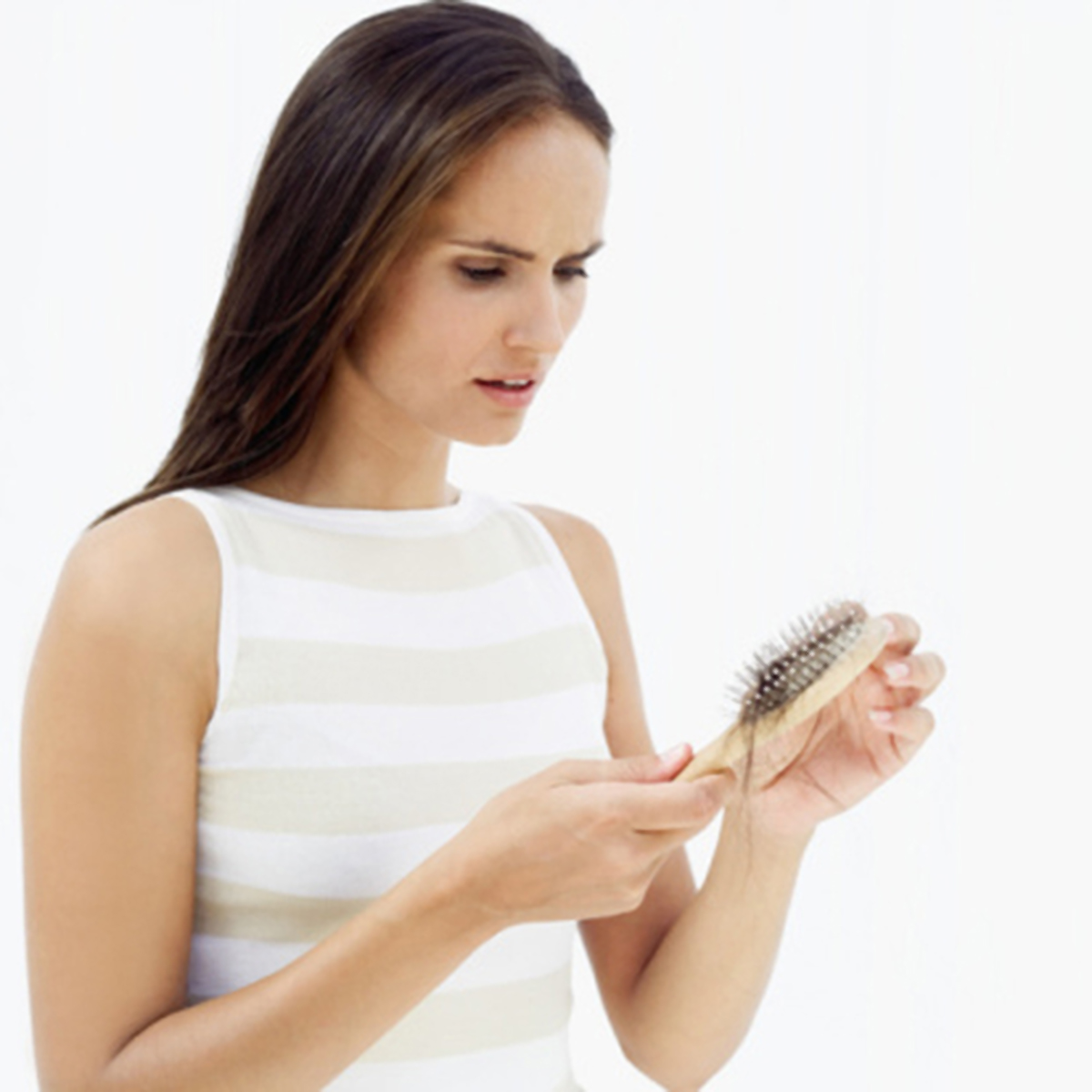It has a name: Telogen Effluvium. Though the term isn’t well known, it’s one of the most persistent complaints of new mothers. A woman’s hair is typically fuller and thicker during pregnancy, but often that’s not the case after delivery.
Telogen effluvium is the excessive shedding of hair that occurs approximately one to five months following delivery, most commonly around the third month after giving birth.
Research shows that approximately 40 to 50 percent of pregnant women experience hair loss (also called hair fall), but the good news is that the hair loss due to pregnancy is temporary. Knowing what to do when it starts to happen is key to controlling the way that your hair looks after your baby is born.
In adults, approximately 90 percent of your hair is growing at any one time, while the other 10 percent is considered to be in a resting state. Every two to three months, the resting hair falls out and allows new hair to grow in its place. During pregnancy, an increased number of hairs go into the resting phase and fall out later. The hair loss is usually not severe enough to cause bald spots or permanent hair loss and it should return to normal within six to twelve months.

Top 6 Causes of Hair Loss
If you do feel that your hair loss is significant, it may be caused by a number of factors:
1. Genetic Factors:
If your mother experienced hair loss after delivery, you are more likely to be affected by it.
2. Illnesses and Medications:
Some illnesses cause hair loss. These include diabetes (including gestational diabetes) and ringworm, a fungal infection that can appear anywhere on the skin. In addition, medications can cause hair loss, including some drugs to treat high blood pressure, anxiety and depression. (If you think that an illness or a medication might be causing your hair loss, consult your obstetrician as soon as possible.)
3. Hypothyroidism:
This condition is caused by a decline in the production of thyroid hormone in the body, and is common among women today whether pregnant or not. The thyroid hormone is responsible for the maintaining your basal metabolic rate, digestive system, mental health, and the health of hair and fingernails. The deficiency of this hormone could be part of the issue.
4. Anaemia:
An anaemic condition refers to a reduction in the amount of red blood cells in the body which may lead to a number of different symptoms, including hair loss. Many women do experience anemia (an iron deficiency) during pregnancy. It’s one of the most common causes of hair loss.
5. PCOS:
Polycystic ovarian syndrome (PCOS) is a hormonal imbalance that causes a woman’s ovaries to produce excessive male hormones. While most women affected by this condition experience increased hair growth, hair loss may also occur, especially around your scalp.

6. Other Reproductive Causes:
Hair loss can also happen because of discontinuing birth control pills or another type of hormonal birth control method, or because of an abortion, miscarriage, or stillbirth.
Top 6 Ways To Minimize Hair Loss
Here are some hair loss strategies to consider during and after delivery:
1. Alter Your Styling Routine:
It’s suggested that you stop styling your hair during pregnancy. Go natural. Blow drying, straightening, and using some hair products, such as hair serum, can be harmful to the hair. If you need to use blow dryers and other heated hair instruments, use the cool setting. Be gentle when your hair is wet. Avoid fine tooth combs, pigtails, cornrows, hair weaves, braids and tight hair rollers which can pull your hair. Consider using shampoos and conditioners that contain biotin and silica.
2. Oil Your Scalp:
Regular oiling helps a lot. Your hair needs proper care and nutrition from the root. Applying oil to the scalp twice in a week before going to bed, will nourish your hair while you’re pregnant. You’ll want to massage your scalp with lukewarm oil. Coconut oil, jojoba oil, almond oil, olive oil and mustard oil are among the best oils to use.
3. Go Organic:
The chemicals present in the many of the most popular cosmetics on the market may cause harm to pregnant women. Read the labels closely. Using natural and organic products is one of the best steps to reduce hair fall occurring due to skin infections and allergic reactions of the scalp. Organic products are also the best best for women with sensitive skin.
4. aintain A Healthy Diet:
Foods packed with essential vitamins and minerals that are necessary for a baby’s well-being, as well as the mother’s health – and her hair. According to MayoClinic.com, not eating enough protein can also cause hair loss, while taking too much of some vitamins, like the retinol form of vitamin A, can also result in hair loss.
Eating a diet high in fruits and vegetables, which contain flavonoids and antioxidants, may provide protection for the hair follicles and encourage hair growth. To help with hair loss, consider supplementing your diet with Vitamin B complex, Vitamin C. Vitamin E (not too much), and Zinc (not too much). Most good prenatal vitamins may already contain these.
5. Try Meditation:
As Bob Marley reminds us, “Don’t worry. Be happy.” It’s important to lead a stress-free life during pregnancy. Stress is one of the important reasons for hair fall due to pregnancy. Mood swings often cause an increase in stress levels. Breathe. Relax. By introducing self-care routines, you can help reduce the likelihood of stressing yourself out during (and after) your pregnancy.
6. Herbal Remedies:
Aloe vera extracts have earned their reputation of being amazingly helpful in dealing with most skin disorders. Applying aloe vera gel to your scalp can help prevent excessive hair loss due to dryness and infection of the scalp. Indian gooseberry (amla) is one of the best natural remedies when it comes to hair loss. Amla powder (when taken orally or massaged as oil into the scalp) strengthens hair and prevent hair loss. Neem is yet another effective herbal treatment for pregnant women. It’s a natural antibacterial agent that prevents growth of bacteria that may lead to infection and hair fall. You can help reduce hair loss by applying fresh neem leaves onto your scalp.
Remember, though each pregnant woman will have a different experience with hair loss, it’s a natural process that can be controlled naturally.
As always, it’s recommended that you consult with your health care provider as to what is best for you and to ask him/her about any of the remedies mentioned in this article.
For more information visit us our website: https://healthcaretipshub.com







No Comment! Be the first one.